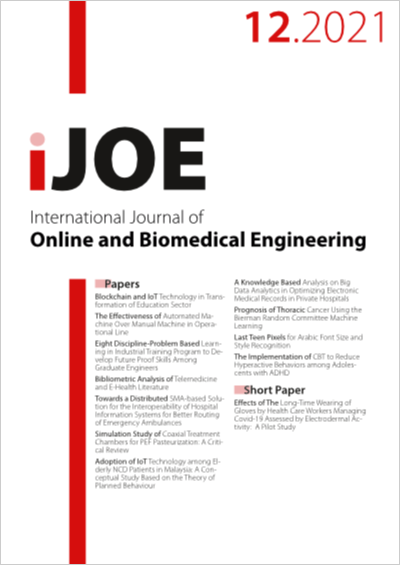Eight Discipline-Problem Based Learning in Industrial Training Program to Develop Future Proof Skills Among Graduate Engineers
DOI:
https://doi.org/10.3991/ijoe.v17i12.25481Keywords:
Eight, Discipline, Methodology, Industrial Training, Internship, AssessmentAbstract
The mismatch of skills is one of the main reasons for unemployment. The analysis revealed employers’ agreement of graduate engineers’ performance in non-technical skills which is deemed to not meet their expectations. Therefore, to align with the needs of employers; universities are working hard to close the gap and begin to focus to produce work-ready engineers whom are good asset for the industry and those who are able to work with minimal supervision independently. The various jobs and non-technical skills triggered a vast change to the labor market with a prime shift in the skills required to thrive in the new environment anticipated but also to business structures that was requested from Industrial Revolution 4.0 (IR4.0). The nine skills would be Leadership, Flexibility and Adaptability, and Language literacy, Critical thinking and solving problems, Holistic, Entrepreneurial and Balance, Resilience, Values and Ethics, Compassion and Mindfulness, Creativity and Innovation. These skills or talents that recognize employees as competent are called as future-proof non-technical skills. The purpose of this paper is to upgrade the nine future-proof non-technical skills that are set especially for the engineering students through industrial training, and also to demonstrate the capability of Eight-Discipline-Problem based learning (8D-PBL); and things need to be emphasized in industrial training assessment method to ensure the objective of the industrial training is achieved.
Downloads
Published
How to Cite
Issue
Section
License
Copyright (c) 2021 Murugan Subramaniam, Muhammad Khair Noordin, Hanzalah Mohamed Nor

This work is licensed under a Creative Commons Attribution 4.0 International License.



